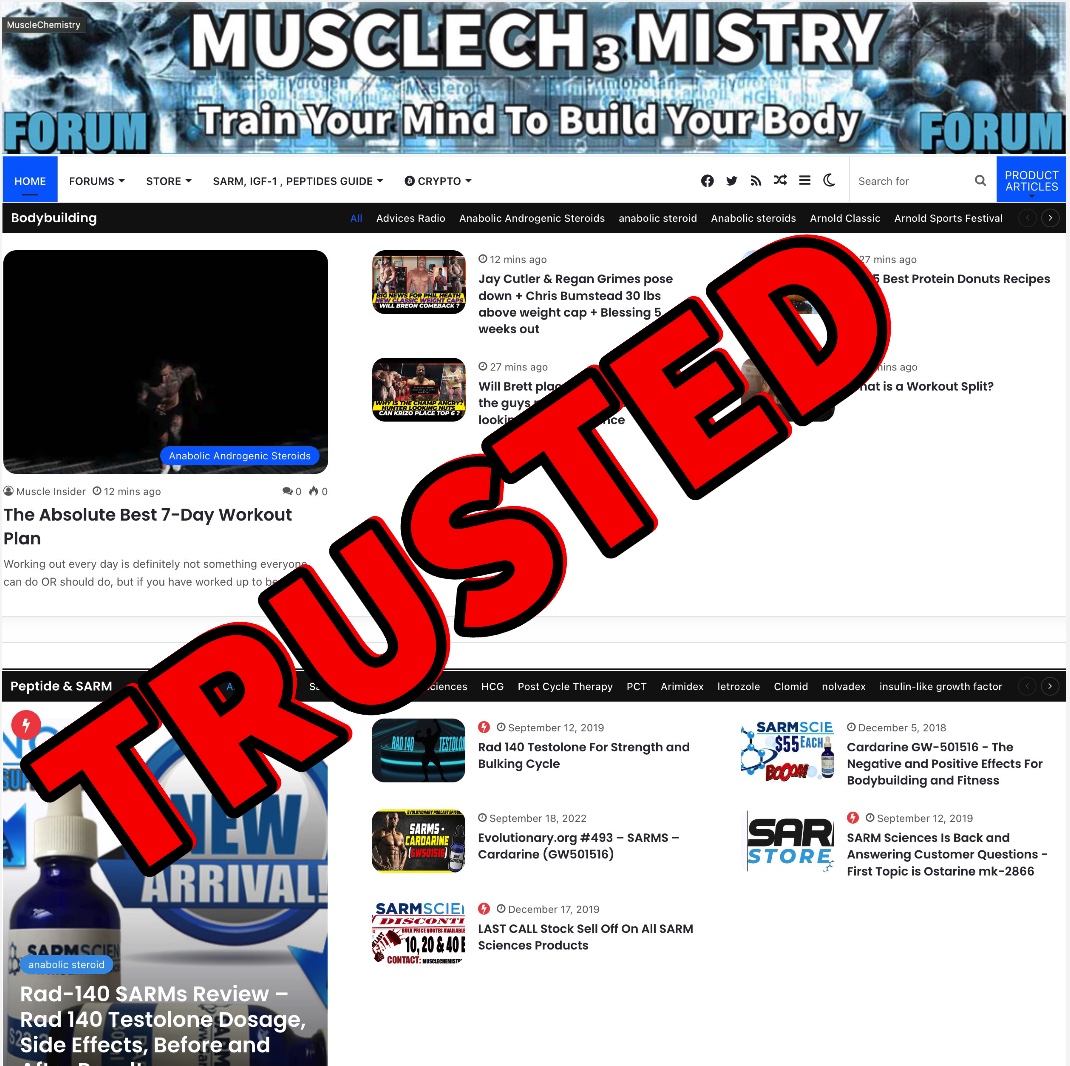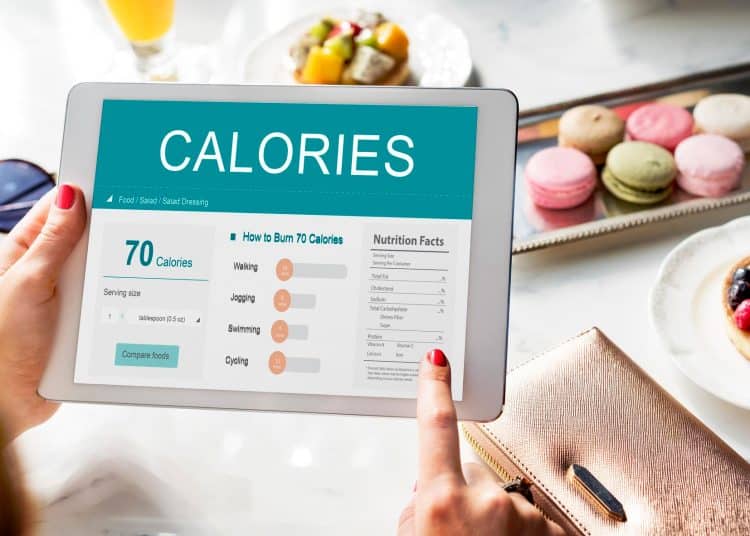Tag: safety

Anabolic Steroids:
Anabolic Steroids: Safeguarding Your Journey In a realm where strength and prowess reign, athletes and bodybuilders seek the edge to push their limits. Anabolic steroids, often hailed as the keys to unlocking untapped potential, have become the elixir of choice. However, in this quest for greatness, caution is paramount. The Path to Power: Trusted Sources…

IGF-1 LR3 for Females
IGF-1 LR3 (Insulin-like Growth Factor 1 Long R3) is a powerful peptide hormone known for its role in promoting muscle growth and tissue repair. While it is widely used by male athletes and bodybuilders, some females are also interested in exploring its benefits. In this comprehensive guide, we will discuss the safe and effective use…

Tbol
Turinabol, commonly known as Tbol, is a popular choice among bodybuilders seeking enhanced muscle gains and improved performance. This article provides valuable insights into dosages, durations, and recommended steroid stacks for beginners, intermediates, and advanced users. Discover the optimal approach to maximizing the benefits of Tbol while prioritizing your health and safety.

Intermittent Fasting While Breastfeeding — Is It Safe?
Many new mothers wonder if they can fast while breastfeeding their little ones. Fasting is a great way to lose weight, but you must ensure that you meet your and your baby’s nutritional demands.
A woman’s biggest fear about fasting while breastfeeding is that the latter can lessen the milk supply for her baby. There has been a lot of research around studying the nutrient composition of breast milk with and without fasting. The results are more inclined toward short-term fasting not affecting breast milk supply and its macronutrients. However, fasting might impact some micronutrients. [1]
The good news is that experts believe that breastfeeding itself makes you lose weight. [2] While that’s true in most cases, your metabolism, sleep cycle, and how much you eat will affect this process. [3]
So, can you mix intermittent fasting (IF) with breastfeeding? The short answer is yes. As long as your baby is gaining weight, it should be fine, but there are things you must know. [4]
Before we explore the big question, let us first understand the technicalities of your calorie requirements while breastfeeding.
Understand Your Calorie Requirements
You need to consume 300-400 kilocalories more while breastfeeding. However, a person’s age, activity level, BMI, and whether a woman is exclusively breastfeeding or formula feeding would specify the exact number of additional caloric requirements.
While other moderately active females who are not breastfeeding or pregnant are recommended to have around 1,600-2,400 kilocalories (kcal) per day, breastfeeding women should have around 2,000-2,800 kcal to meet their baby’s and their body’s caloric requirements, as per the CDC. [5]
Do Not Rush Weight Loss
Rushing to lose weight immediately after delivery is generally not advisable. During the first two months of breastfeeding, your milk supply is susceptible to your food consumption. Once you have established a breastfeeding routine with your baby and your milk supply is regulated, you can start experimenting with your weight loss regime.
And once you do, you must observe how your baby reacts to the new normal. If you find any signs of over-sleepiness, your baby is feeding longer than usual, or you are just not interested in feeding, you should consult a doctor.
You should also watch out for differences in their poop pattern or if their diapers are excessively dry. If your baby is not gaining weight in line with a healthy growth pattern, you should know something is wrong and put your weight loss ambitions on hold.
Can I Do Intermittent Fasting While Breastfeeding?
Yes, you can, but you must ensure enough nutrition during your eating window. You can consult a dietician to plan your diet based on your metabolism, weight, and body requirements. In any case, you should consume enough fluids to keep your body well-hydrated.
A study conducted on ten lactating Gambian women showed milk synthesis was affected due to consuming fewer fluids when fasting during Ramadan. The uric acid concentration in their bodies rose, along with changes in milk osmolality, sodium, potassium, protein, and lactose content. [6]
There is a lot of conflicting evidence on fasting and breast milk supply. Some studies show that short-term fasting does not impact the supply as long as you stay hydrated; others show that the milk supply can get affected. But their reasons are also attributed to an improper diet while eating between fasts. [7] [8] [9]
Breastmilk Supply, Medications, and Weight Gain
Many medical conditions can also affect breast milk supply, whether you are fasting or not. Also, there are other lifestyle factors such as stress, pregnancy, improper diet, alcohol, cigarette, or caffeine consumption that impact milk production.
Further, certain medications for colds and flu can also dry up milk due to pseudoephedrine. [10]
Women with low breastmilk supply are often given medications such as Domperidone (Motilium) to boost supply, which is generally recommended for people who cannot empty their bowels. If you take them while breastfeeding, you will go to the toilet more often, indirectly making you eat more and gain weight. [11]
How Will Your Body React to Intermittent Fasting?
You might feel hungry during the first few days of following your fasting regime. Your body continuously works to produce milk from the glucose in your body and is naturally worked up with a limited supply due to food shortages. You will quickly exhaust the food and reach a fasted state.
Also, be prepared to feel more thirsty than usual. When the baby sucks on the nipple, the oxytocin release in the brain instigates a thirst response. You will drink more water than usual as the body tries to reach homeostasis for the fluid lost while the baby is feeding. [12]
Factors To Keep in Mind When Combining IF and Breastfeeding
If you have done your research and are determined to take the plunge, here are some things you should pay particular attention to.
Liquid Intake
Ensure you have at least 16 cups of water daily [13]. Generally, health experts suggest having water after every feeding session. Also, if your baby looks dehydrated or you are finding reddish orange diapers, you should consult a doctor.
Research has also indicated that with low fluid intake, milk’s nutritional content might decrease when fasting. [1]
Nutritional Requirements
A baby is at risk of iodine, vitamin B12, and other micronutrient deficiencies when a mother eats poorly. So you should properly understand the nutritional components of your food to avoid any risks to you or your baby when fasting. [14]
You should take your prescribed vitamin supplements without fail when your body is working out more than usual. You should know the signs of vitamin deficiency.
Also, watch out for brittle nails; it shows biotin or vitamin B7 deficiency. Iron deficiency can cause cracks around the corners of the lips or mouth ulcers. Bleeding gums and white growth around the eyes might mean you lack enough Vitamin C or A in your diet. And lastly, hair loss and dandruff, which are very common post-partum, are also sometimes linked to improper nutrition.
Understand Your Body’s Needs
When fasting and feeding, you should watch out for unwanted symptoms such as muscle weakness, tiredness, and over-fatigue. Vitamin deficiency in your body can also lead to anemia, so avoid overdoing or stretching your limits.
Further, some hormones cause weight gain when the body generates milk. The prolactin hormone is secreted to induce milk production. It also stores fat to keep your baby fed even when you eat less. So, if you are eating moderately and still not losing weight, you should give yourself a break.
Other than fasting, you should minimize stress as best you can. Improper sleeping patterns, breastfeeding your baby almost all the time, hormones, and surgery pains can pile up your stress levels. This stress can make you gain weight. According to a study, cortisol, the stress hormone, also leads to post-natal depression. So, to lose weight efficiently, you should reduce the factors that cause stress. [15]
Keep Up Your Milk Supply
You should check how your baby latches and not give long gaps between breastfeeding, as it can naturally lower milk supply. You can use a breast pump when needed. If you feed your child too much formula, you might have difficulty keeping up your breast milk supply. Remember to feed your child from both breasts and avoid giving your baby pacifiers. You can continue fasting if your milk supply is well maintained and you have planned short fasting windows.
What Else Can You Do To Lose Weight While Breastfeeding?
It might not always be possible for you to follow the set eating pattern that any intermittent fasting regime demands. But that doesn’t mean you can’t lose weight at all. You can still take care of the following factors, keep your weight under control, and keep yourself healthy.
Work on Your Diet
You should begin by reducing your portion sizes instead of cutting out meals. Avoid high-fat, processed foods, and sugar in your diet. Make recipes with lots of fruits, vegetables, and whole grains to add flavor and nutrition to your diet. Consuming fish is good for its nutrients, but you should avoid some specific fish like swordfish, sharks, tilefish, or marlin.
Sleep Well
You might not get back your sleep routine immediately after having a baby, but you can try to get some quality sleep. Sleep deprivation can cause weight gain. Further, sleep aggravates the hunger hormone ghrelin and decreases leptin release, the hormone responsible for suppressing hunger. [16]
Focus on Physical Fitness
You can include walking or any light exercise in your daily routine. If you prefer and have the time to do more rigorous exercises, you should run, dance, or do aerobics. You can also do strength training with an expert twice a week or so or use some weights at home.
Setting time aside daily for physical fitness can prevent many unwanted health problems. While exercises improve physical health, many doctors and mental health experts also recommend daily workouts for women with postpartum depression. Regular exercise releases serotonin, the feel-good hormone, in the brain and helps uplift mood.
Best Intermittent Fasting Method While Breastfeeding
You should avoid intermittent fasting with longer fasting windows while breastfeeding. Making your body crave food for long might not let you meet your and your baby’s nutritional requirements. A study on breastfeeding mothers who fasted for more than twenty-four hours showed a reduction in certain biochemical markers of the milk. [17]
Fasting methods such as ‘5/2 Fasting,’ ‘Eat Stop Eat,’ and ‘Alternate Day Fasting’ are intense forms of fasting, and it’s best to avoid them. Moreover, excessive amounts of ketone production in the body due to prolonged fasting might lead to ketoacidosis, which is quite harmful to the body.
You can pick an easier fasting regime, such as 14/10 or 16/8, which is more sustainable and healthy for you and your baby. Whichever IF plan you choose, you should always count your calories and ensure you meet your daily macro and micronutrient needs.
FAQs
What should I eat while breastfeeding?
Your diet should be rich in fruits and vegetables, seeds, nuts, and fiber-rich foods like lentils, oats, potatoes, fish, seafood, meat, or poultry.
How many calories should I add to my diet when I am breastfeeding?
You should have at least 300-400 calories in your diet to feed your little one properly. Your caloric requirement may vary depending on your body mass index, age, activity levels, and how much you are breastfeeding.
Which IF plan should I choose when breastfeeding?
While breastfeeding, you can use moderate intermittent fasting plans such as 14:10 or 16:8. Avoid diets with long fasting windows.
How much water should I consume when breastfeeding?
You should drink at least 16 cups of water while breastfeeding your baby to provide the extra water needed to make milk.
Conclusion
So, the good news is that you can fast while breastfeeding your baby. Still, you should do it under expert supervision. You can try a simple IF plan that does not suppress your appetite and gives you enough time to meet your macro and micronutrient needs.
Most importantly, you should keep hydrating your body with water, lemon juice, or other fluids and eat a wholesome diet during your eating window. Also, watch out for any signs of dehydration you or your baby might have and make the necessary changes in your fasting pattern.
References
Leiper, J. B., & Molla, A. M. (2003, December 18). Effects on health of fluid restriction during fasting in Ramadan – European Journal of Clinical Nutrition. Nature. https://doi.org/10.1038/sj.ejcn.1601899 In-Text Citation: (Leiper & Molla, 2003)
Breastfeeding and postpartum weight loss : Current Opinion in Clinical Nutrition & Metabolic Care. (n.d.). LWW. https://doi.org/10.1097/MCO.0000000000000597 In-Text Citation: (Breastfeeding and Postpartum Weight Loss : Current Opinion in Clinical Nutrition & Metabolic Care, n.d.)
Prevalence and characteristics associated with gestational weight gain adequacy – PubMed. (2015, April 1). PubMed. https://doi.org/10.1097/AOG.0000000000000739 In-Text Citation: (Prevalence and Characteristics Associated With Gestational Weight Gain Adequacy – PubMed, 2015)
https://www.nejm.org/doi/full/10.1056/NEJM200002173420701#t=articleBackground
C. (2023, April 17). Diet considerations for breastfeeding mothers. Centers for Disease Control and Prevention. https://www.cdc.gov/breastfeeding/breastfeeding-special-circumstances/diet-and-micronutrients/maternal-diet.html In-Text Citation: (2023)
Prentice, A. M., Lamb, W. H., Prentice, A., & Coward, W. A. (1984, March 1). The Effect of Water Abstention on Milk Synthesis in Lactating Women. Portland Press. https://doi.org/10.1042/cs0660291 In-Text Citation: (Prentice et al., 1984)
Religious fasting and breastfeeding | Australian Breastfeeding Association. (n.d.). Religious Fasting and Breastfeeding | Australian Breastfeeding Association. https://www.breastfeeding.asn.au/resources/religious-fasting-and-breastfeeding#:~:text=Milk%20supply%20while%20fasting,does%20not%20decrease%20milk%20supply. In-Text Citation: (Religious Fasting and Breastfeeding | Australian Breastfeeding Association, n.d.)
Leiper, J. B., & Molla, A. M. (2003, December 18). Effects on health of fluid restriction during fasting in Ramadan – European Journal of Clinical Nutrition. Nature. https://doi.org/10.1038/sj.ejcn.1601899 In-Text Citation: (Leiper & Molla, 2003)
E. Faris, M. A. I., & Al-Holy, M. A. (2014, April 1). Implications of Ramadan intermittent fasting on maternal and fetal health and nutritional status: A review – IOS Press. Implications of Ramadan Intermittent Fasting on Maternal and Fetal Health and Nutritional Status: A Review – IOS Press. https://doi.org/10.3233/MNM-140011 In-Text Citation: (E. Faris & Al-Holy, 2014)
Głowacka, K., & Wiela-Hojeńska, A. (2021, May 13). Pseudoephedrine—Benefits and Risks. PubMed Central (PMC). https://doi.org/10.3390/ijms22105146 In-Text Citation: (Głowacka & Wiela-Hojeńska, 2021)
Zizzo, G., Rumbold, A. R., & Grzeskowiak, L. E. (2021, December 9). “Fear of stopping” vs. “wanting to get off the medication”: exploring women’s experiences of using domperidone as a galactagogue – a qualitative study. PubMed Central (PMC). https://doi.org/10.1186/s13006-021-00438-5 In-Text Citation: (Zizzo et al., 2021)
Thirst induced by a suckling episode during breast feeding and relation with plasma vasopressin, oxytocin and osmoregulation – PubMed. (1995, September 1). PubMed. https://doi.org/10.1111/j.1365-2265.1995.tb02032.x In-Text Citation: (Thirst Induced by a Suckling Episode During Breast Feeding and Relation With Plasma Vasopressin, Oxytocin and Osmoregulation – PubMed, 1995)
Nursing Your Baby What You Eat and Drink Matters. (n.d.). Nursing Your Baby What You Eat and Drink Matters. https://www.eatright.org/health/pregnancy/breastfeeding-and-formula/nursing-your-baby-what-you-eat-and-drink-matters In-Text Citation: (Nursing Your Baby What You Eat and Drink Matters, n.d.)
Breastfeeding and your diet | Australian Breastfeeding Association. (n.d.). Breastfeeding and Your Diet | Australian Breastfeeding Association. https://www.breastfeeding.asn.au/resources/breastfeeding-your-diet In-Text Citation: (Breastfeeding and Your Diet | Australian Breastfeeding Association, n.d.)
Cortisol metabolism, postnatal depression and weight changes in the first 12 months postpartum – PubMed. (2016, December 1). PubMed. https://doi.org/10.1111/cen.13150 In-Text Citation: (Cortisol Metabolism, Postnatal Depression and Weight Changes in the First 12 Months Postpartum – PubMed, 2016)
Greer, S. M., Goldstein, A. N., & Walker, M. P. (2013, August 6). The impact of sleep deprivation on food desire in the human brain – Nature Communications. Nature. https://doi.org/10.1038/ncomms3259 In-Text Citation: (Greer et al., 2013)
Effect of a 24+ hour fast on breast milk composition – PubMed. (2009, May 1). PubMed. https://doi.org/10.1177/0890334409331505 In-Text Citation: (Effect of a 24+ Hour Fast on Breast Milk Composition – PubMed, 2009)

